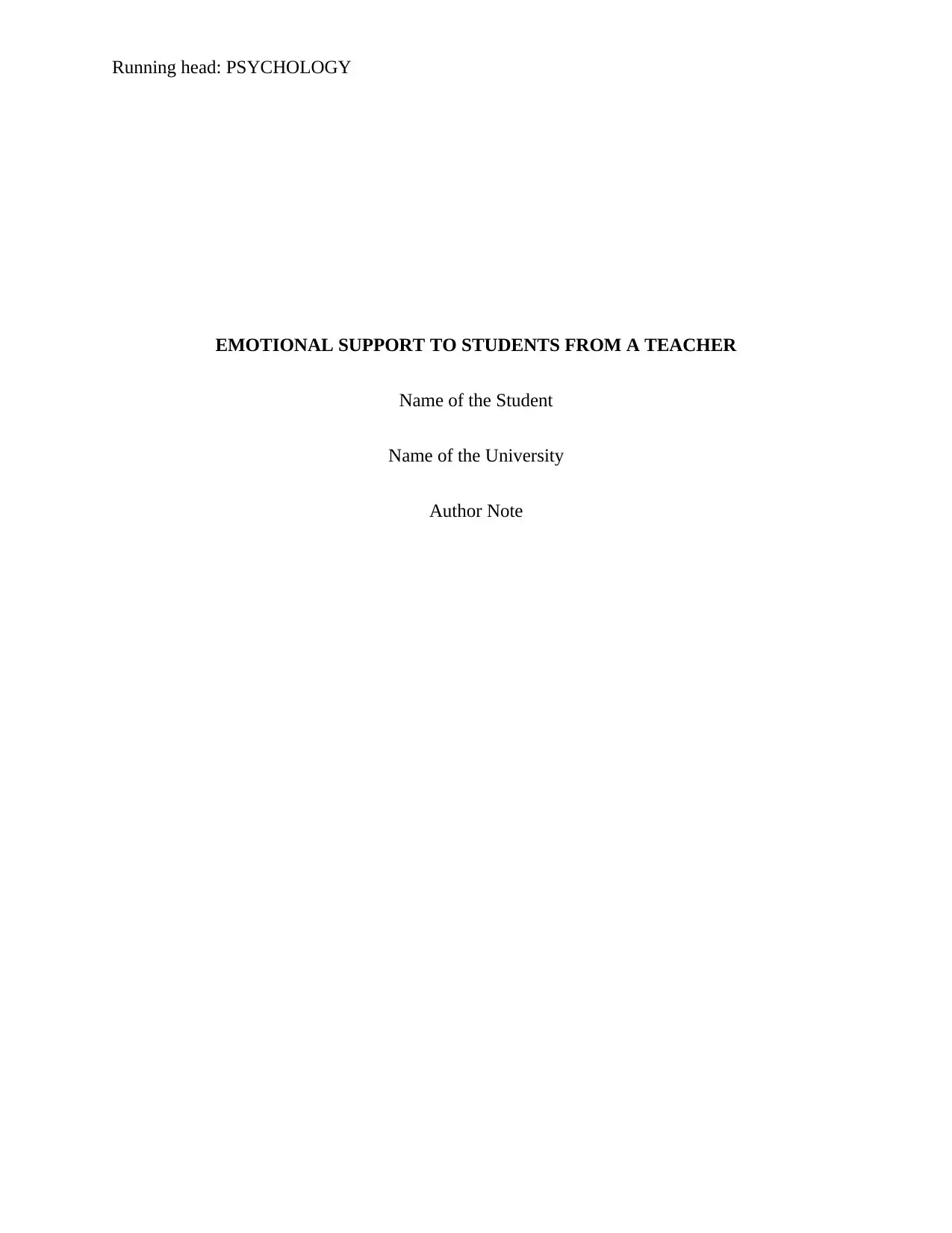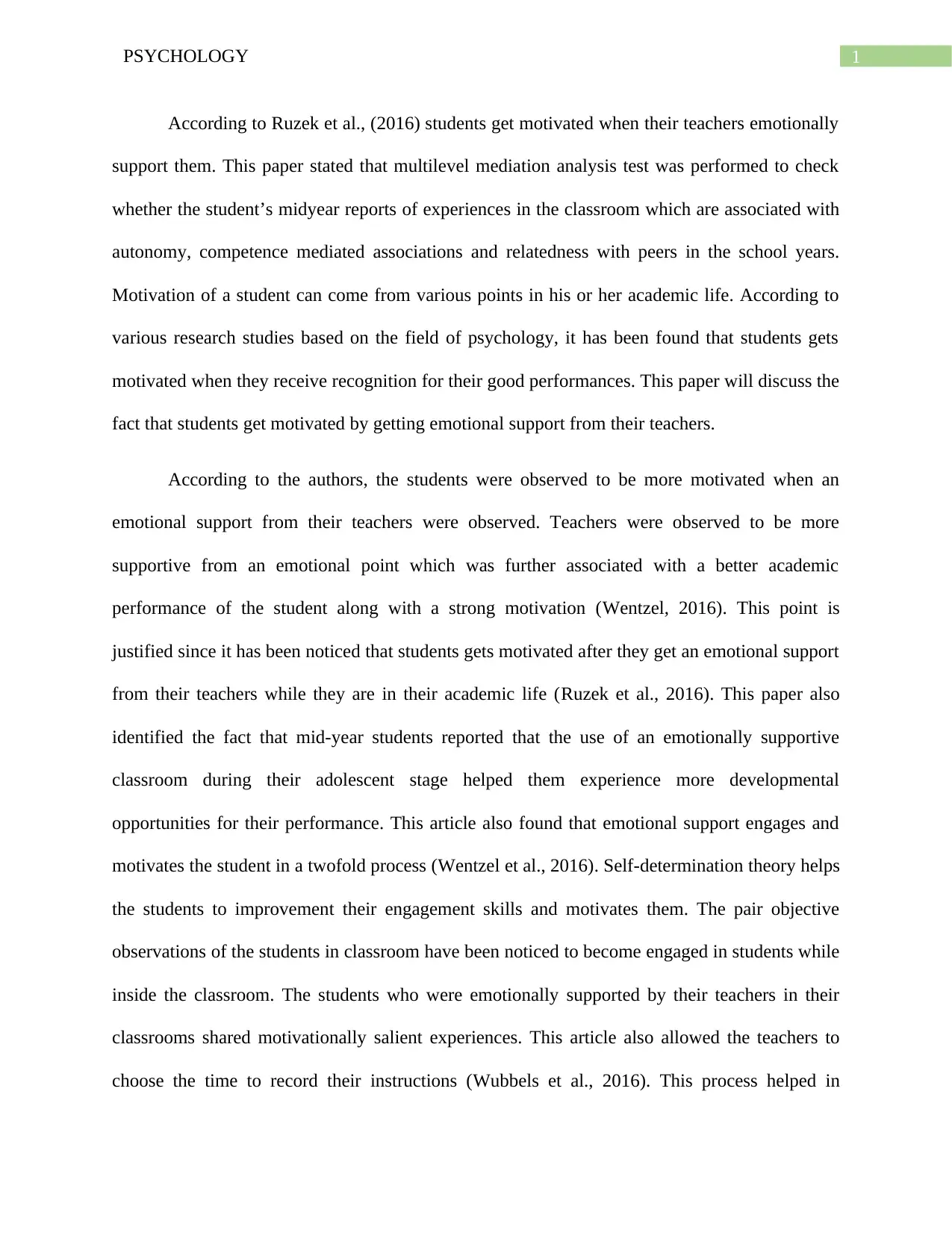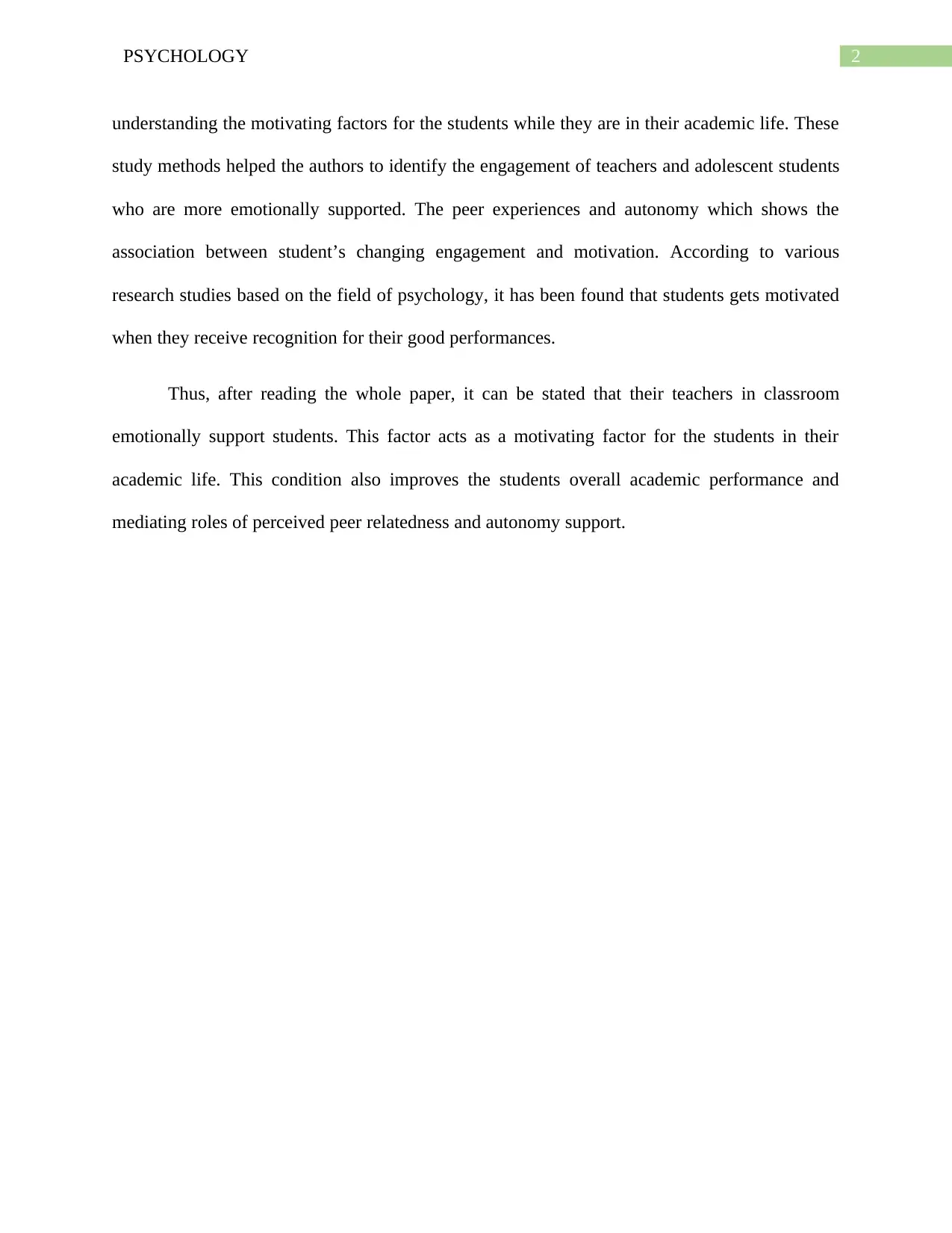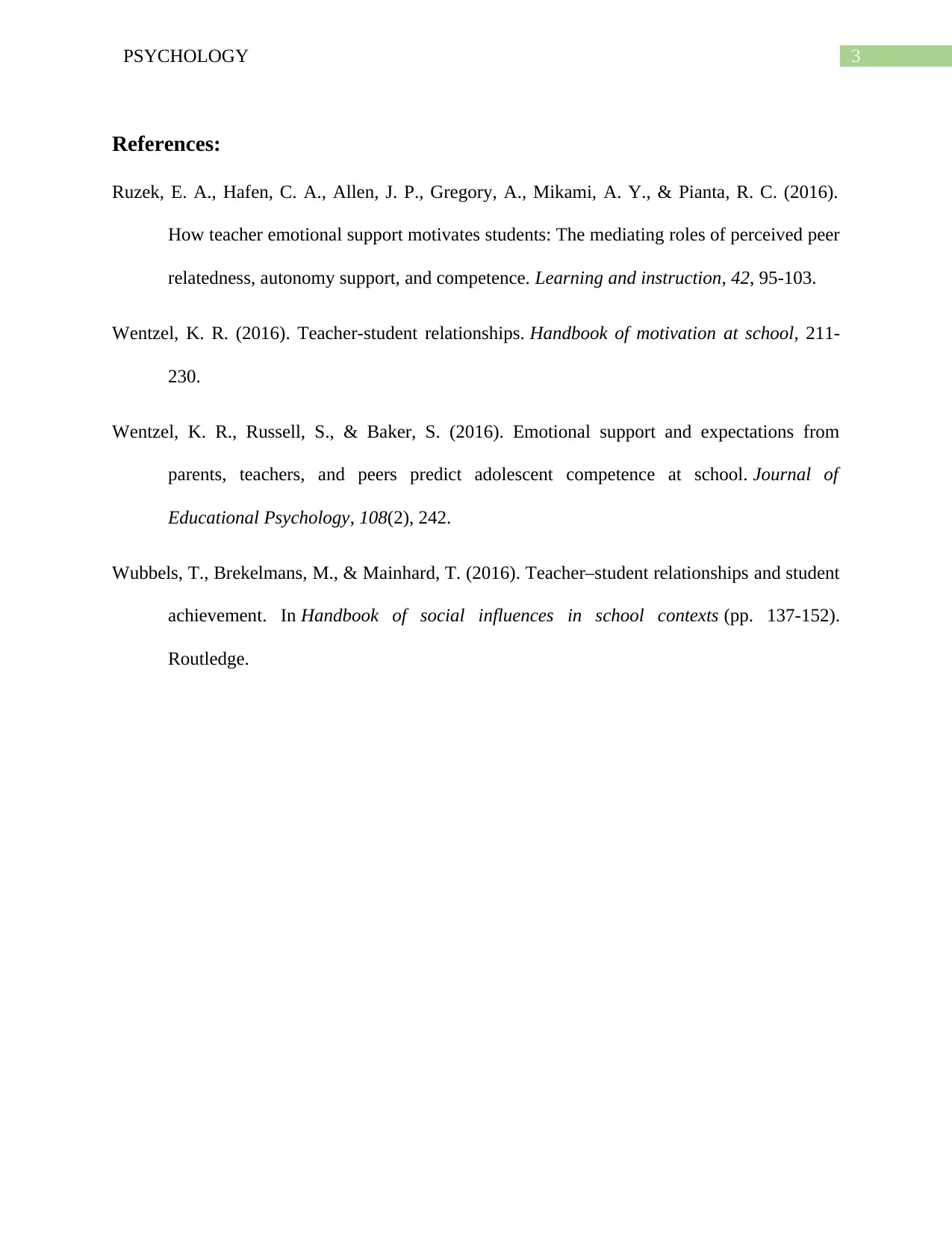Emotional Support from Teachers and Student Motivation in Psychology
VerifiedAdded on 2022/08/27
|4
|684
|16
Report
AI Summary
This psychology report examines the impact of emotional support from teachers on student motivation, drawing on research by Ruzek et al. (2016), Wentzel (2016), and Wubbels et al. (2016). The report highlights how emotional support in the classroom enhances student engagement, academic performance, and motivation. It discusses the role of peer relationships, autonomy support, and competence in mediating the relationship between teacher support and student outcomes. The study emphasizes the significance of emotionally supportive environments and how teachers can foster these environments to improve student experiences and outcomes. The report also touches on the brain structures involved in emotion and motivation, and the generalizability of these findings to various areas of psychology.
1 out of 4











![[object Object]](/_next/static/media/star-bottom.7253800d.svg)